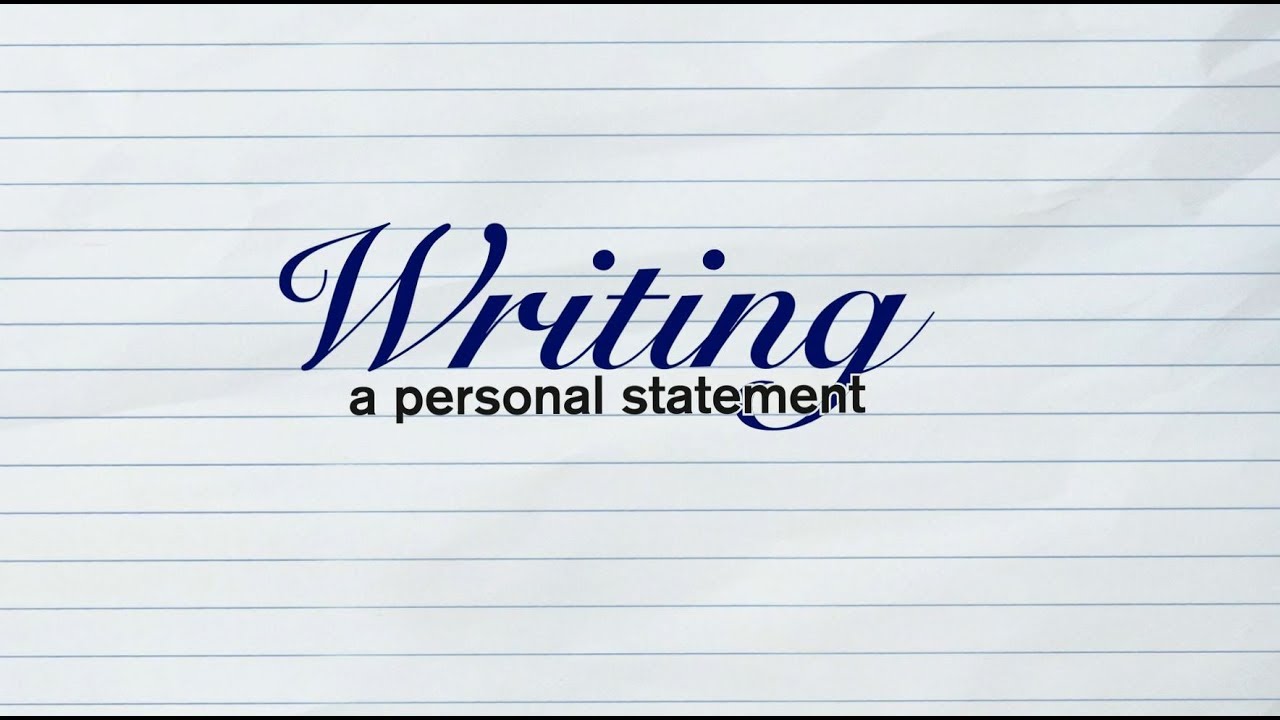If you are a gifted student who plans to attend college, you’re probably examining all of your high school alternatives if you don’t find your typical core classes challenging enough. Perhaps it is time to consider enrolling in college prep or honors classes.
You will find more in-depth coursework and projects here, as well as more complex reading and writing assignments, and you will create more impressive transcripts for your college applications.
In the article, you will learn more about college prep classes, their types, their advantages, and other details about college prep classes.
Table of contents
- What are college prep classes?
- Understanding college preparatory courses
- Types of College Prep Classes
- What Is the Difference Between an IB and an AP?
- What Is the Difference Between Honors and AP Classes?
- How Do I Enroll in Honors Classes?
- The Advantages of College Prep Classes
- College Preparation Courses and the Big Decision
- FAQs College Prep Classes in 2024
- Conclusion
What are college prep classes?
College Prep classes are advanced-level classes that prepare you for the type of schoolwork you’ll experience in college. Honors, Advanced Placement, and International Baccalaureate classes are examples, while North Carolina offers unique chances through Career and College Promise programs.
Choose classes that will challenge you wherever possible. It’s more difficult to obtain an A in certain classes, but they can improve your academic preparation, and some grades are weighted so that they count for more when calculating your GPA.
Understanding college preparatory courses
This phrase can be highly perplexing because it has several meanings! It is critical to grasp the differences as they apply to different schools, but the following summarizes what CP can entail in all of its forms:
CP courses, or college prep courses, are classes offered at various high schools that prepare you for your future scholastic career as a college student. These can include CP programs that teach you how to manage your college applications, financial assistance, and loans, what to expect from a college experience and other topics.
These types of CP programs in high school are often taught by college advisers, who subsequently assist you in identifying, selecting, and applying to your preferred colleges and institutions. Your college advisor will teach you what looks nice on a resume and what you can do to stand out.
At other schools, College prep classes can mean a more difficult workload and classes that require more of you as a student. A College prep class is distinct from an AP class, which stands for Advanced Placement. AP classes are courses that you can take to gain college credit; as a result, they are taught at the college level and can be rather tough.
AP courses are not available in every school. College prep classes are distinct in that they do not provide college credit and are not overseen by the College Board.
College prep can sometimes refer to a certain sort of school, which can be either public or private. College preparatory institutions offer a more rigorous curriculum that prepares students for the rigors of a bachelor’s degree. These schools provide more difficult coursework and course subjects, as well as more reading and writing assignments and a greater range of classes.
A college prep school’s curriculum still adheres to the regular national requirements in math, science, history, and English, but at a higher level of instruction.
Types of College Prep Classes
Honors
Honors classes are a more difficult version of a high school subject. Honors classes, which are tailored to high-achieving students and involve critical thinking and in-depth research, are often offered to students in the top tier of their class.
These grades are occasionally weighted to reflect their increased difficulty. Most students find these classes tough and excellent preparation for the college classes they will be attending in the coming years.
Read: Types Of College Classes And Courses To Take
Advanced Placement Program
In terms of intensity and pace, AP classes are similar to Honors—sometimes a touch more difficult—but they also allow you to earn college credit. You take the class and receive a (weighted) grade recorded on your high school transcript.
Then, after the year, you take the AP exam and receive a score ranging from 1 to 5. You can earn college credit for that course if you score well enough on the exam (typically a 3 or better, although it varies on the college).
AP courses look excellent on a transcript and can save you time and money by allowing you to skip some of the classes you’d have to take in college.
International Baccalaureate (IB)
The IB curriculum, like AP and Honors, provides advanced teaching to students, but the emphasis is on creative, critical thinking about wider topics and global concerns. You can earn college credit by testing well at the end of the term, just like AP, but you can also earn an IB diploma by taking all of the required classes.
Earning the diploma or even taking IB coursework can help you stand out in college, and IB may be especially beneficial for those interested in fields with an international component, such as political science or business.
Other College Preparation Courses
Other classes you’ll need to take to get into college differ based on what you want to major in and where you want to go to school. If you want to be prepared for a pre-med program, you should study biology, anatomy and physiology, and other science-track courses. Many schools demand two years of foreign language classes, regardless of major.
Some schools value computer skills, while others value a well-rounded curriculum that includes the arts as well as the sciences.
Examine the course requirements for the programs you’re interested in, and make sure you’re taking classes with college in mind. A discussion with your counselor will also assist you in deciding what to take.
What Is the Difference Between an IB and an AP?
Although both programs provide demanding courses for high school students, they do it in very different ways.
Popularity
By far the most popular curriculum is Advanced Placement. 2.8 million students took AP exams in 2019.
In May 2019, just over 166,000 students took IB exams. The pass rate for the Diploma was 77.81 percent. Some families choose the IB program over the AP program because it is more unusual and can help pupils stand out in the admissions process.
Diploma
IB was designed as a graduation program (however, as previously discussed, a few IB classes can be taken for college credit). Meanwhile, the AP program was created to focus on advanced coursework rather than a certificate. (However, the AP has produced a competitor to the IB in the form of the AP International Diploma, which you may learn about here.)
Curriculum for the classroom
For teachers, IB curricula are more stringent. As part of the internal assessment, the IB requires your teacher to grade certain necessary assignments, such as oral presentations. On the other hand, AP teachers have a little more leeway in how they teach an AP course, as long as they’re efficiently preparing students for the exam.
Read: 10 Best College Student Laptop Discounts You Can Get
Difficulty
IB Higher Level courses are frequently thought to be more difficult than APs, whilst IB Standard Level courses are thought to be on par with or easier than APs. Remember that the difficulty of a class at your school will vary based on the teacher and their curriculum.
Examinable Subjects
IB exams focus more on writing and applying ideas, whereas AP examinations focus more on proving what you know.
This is why AP exams have more multiple-choice questions, whereas IB exams have more short-answer questions, essays, and case studies.
Cost
At $119 per exam, IB exams are more expensive than AP assessments. AP exams are slightly less expensive, costing $94. Keep in mind that these fees are significantly lower than college tuition for the same classes!
Credit for College
Obtaining AP credit may be easier because more US universities are familiar with it, and the College Board officially establishes a passing grade (3 out of 5), whereas the IB does not.
Furthermore, because AP courses only have one difficulty level, universities may find it easier to establish credit standards for AP tests. Colleges must decide how they will manage Standard Level and Higher Level courses for IB.
However, the better your passing score for both IB and AP exams, the more likely you are to receive college credit. For example, an AP test score of 5 almost always earns credit, as does an IB score of 7. Remember this when you’re studying!
What Is the Difference Between Honors and AP Classes?
Understanding the distinction between AP and honors classes might help you save time and money in college. Continue reading to learn how these two types of classes differ.
Possibility of Earning College Credit
Both AP and honors programs can boost your college application’s competitiveness, but AP tests provide a further benefit: the opportunity to earn college credit. Passing an AP exam with a score of 3 or higher can result in college credit in a variety of majors at various colleges.
AP classes are also more difficult than honors classes. You should be able to manage demanding homework while studying for AP tests if you are taking AP subjects.
Curriculum and Duration
During a semester, honors classes typically follow a teacher-designed curriculum. These classes typically cover more information than ordinary classes and offer a more in-depth examination of numerous topics.
AP courses, on the other hand, follow the College Board curriculum over 1-2 semesters. Every year, AP tests are held in May or June, so you must maintain healthy study habits to retain older content on exam day.
Level of Difficulty
Honors and AP classes can also be difficult for students. Honors classes involve more effort than regular courses, and AP classes might be even more difficult. AP programs are designed to duplicate college-level material, whereas honors classes provide advanced high school content.
The difficulty level varies by subject in both honors and AP classes. AP Physics 1, AP World History, and AP English Literature are among the most difficult AP courses and tests.
Availability of Classes
Honors classes may be more accessible than AP classes because they are typically given at every grade level in high school.
Students in grades 10-12 are often enrolled in AP courses that only provide one level. This can make them more difficult to obtain, especially for yearlong classes.
Also, keep in mind that you do not have to attend an AP class to take an AP exam; you can study the content on your own if you feel capable, though this is difficult for many students.
GPA Weight
Honors and AP classes at many high schools both provide more severely weighted training than regular classes. Honors courses often add 0.5 points to your GPA, and AP subjects frequently add 1 point. In other words, a 3.5 GPA would be raised to 4.0 in honors classes and 4.5 in AP classes.
This boost is especially handy if you want to push yourself with more tough training without jeopardizing your GPA. However, if you opt to take an AP exam without taking the AP class, your GPA will not improve.
Read: 10 Powerful Benefits Meditation for College Students | Best Advice
How Do I Enroll in Honors Classes?
If you know you want to take honors classes in high school, you might be wondering how to get started. The answer will vary based on the school, but in most circumstances, you should start by speaking with your student adviser or guidance counselor.
Explain that you want to take an honors course and that you want to know what the requirements are to get in. You may be required to complete a project or take a standard-level class in some situations as a prerequisite.
For example, to be considered for the honors version of the class, you may need to complete a certain English assignment or receive at least an 85 percent. Why? First, your school wants to know that you can handle the additional courses.
To enroll in an honors course, you will most likely require a particular GPA and a recommendation from a certified instructor.
The Advantages of College Prep Classes
Academic Integrity:
For first-year students, college courses might be exceedingly intimidating. Longer essays, the introduction of foreign concepts, and a general difficulty in managing and multitasking are all present.
This is possibly the most crucial reason why college preparation is so vital. Prep schools have cutting-edge resources, facilities, and staff members. They can also provide many more opportunities to take college-level, AP, and honors courses.
Independence:
Preparatory schools encourage young pupils to take responsibility for their ork. They will be encouraged to learn crucial time management skills as well as how to balance academics, the arts, athletics, and social life. Prep students are also asked to join or form their campus organizations or groups based on their hobbies, talents, or interests.
Intimate Learning Environments:
Preparatory schools are supposed to be extremely supportive, despite strong academic requirements and difficult course conditions.
The finest college prep schools include small student-to-teacher ratios that stimulate extra-curricular activities, assist students in developing close relationships with instructors, and ensure that difficult students are watched and receive personalized attention.
Because of the sheer size of public schools, this type of ongoing mentoring and familiarity is frequently unattainable.
Is it worthwhile to take college prep classes?
While you may not be paying for this type of program, your child will be spending a significant amount of time learning and studying, so it is only fair to inquire about its effectiveness. Some studies have yielded astonishing findings. For example, of the nearly 5,000 students who graduated from a college prep school in 2010, students in this program outperformed their peers in traditional educational institutions in terms of achievement.
According to studies, 23.3 percent of high school graduates are also pursuing an associate degree. Furthermore, 77 percent continued their education beyond high school, with 52 percent enrolling in four-year universities.
Furthermore, research shows that the vast majority of students enrolling in this sort, of course are the first in their families to complete secondary education.
College Preparation Courses and the Big Decision
When it comes to planning your high school curriculum, you’ll have to make a difficult choice. Should you remain with regular (or college prep) classes to have a higher GPA, or should you challenge yourself and take the Honors or AP course, where you’ll almost certainly do worse?
The solution is to challenge oneself – within reason. If you believe you can get a B or higher in the harder-level class, you should take it. Most institutions would prefer to see a B in an Honors or AP course than a string of consecutive A’s in college prep programs. Straight As with many college prep classes, it appears that you are avoiding the challenge of honors/AP, and universities do not like people who avoid challenges.
The goal is to show that you are both challenging and mastering the content. A B grade indicates that “I’m just slightly reaching beyond my grasp.” On the other hand, avoiding honors or AP classes where you would most certainly receive a C or D demonstrates self-awareness and mature judgment, both of which universities admire. Taking too many honors and AP classes and receiving largely Cs and Ds suggests that the regular classes would have been a better fit.
So, what are you going to do? We advise taking 1-2 honors or AP classes in disciplines where you feel most comfortable, where your skills lie, or where you are most interested in pursuing further.
Read: 15 Best Colleges For Zoology in the World | Ranking 2024
FAQs College Prep Classes in 2024
College prep courses, or CP courses, are classes offered at various high schools that prepare you for your future scholastic career as a college student. These can include CP programs that teach you how to manage your college applications, financial assistance,, and loans, what to expect from a college experience and other topics.
Most institutions will tell you that getting an A in the Honors/AP class is preferable. Most highly selective colleges will expect you to do so. Many universities, however, would prefer to see a B in an Honors or AP course rather than a higher mark in a typical college prep course.
The average annual tuition for the nation’s 22,440 private K-12 schools is $12,350. Tuition at a typical private high school is $16,040 per year.
The most current NAEP data confirms earlier studies: private school students outperform public school kids in almost every topic. NAIS discovered that pupils in private schools consistently outperformed their public school peers on college entrance exams such as the SAT.
Prep school, in general, provides kids with the greatest prep curricula and personal growth to help them move to college. Preparatory school pupils are usually more mature and have stronger study skills. In many ways, they are more disciplined. Many public schools, on the other hand, have competitive admissions.
A CP class can be a more difficult course than those in a typical high school curriculum, but it is still math, science, history, or English-based and does not grant college credit. The classes at a college prep school are more rigorous and contain more coursework, projects, and assignments.
Conclusion
Enrolling in a college prep class is a difficult experience. You will be expected to work hard in both high school and upper-level classes. Some teenagers may find it overwhelming. On the other hand, the gains for those who are prepared to put in the long hours of study are worth every minute.
Reference:
Recommendation
DISCLOSURE: This post may contain affiliate links, meaning when you click the links and make a purchase, we receive a commission.






1 comment
Comments are closed.